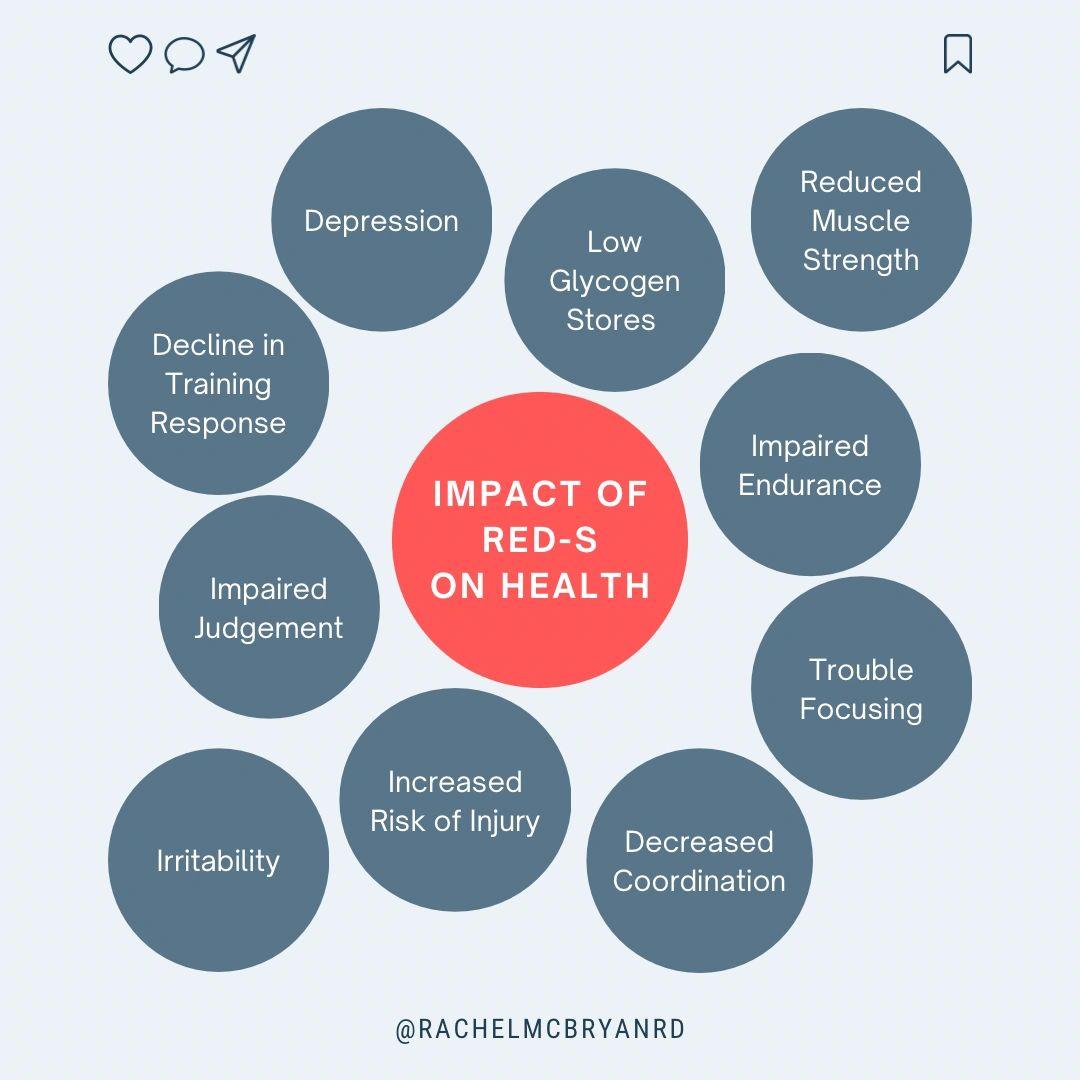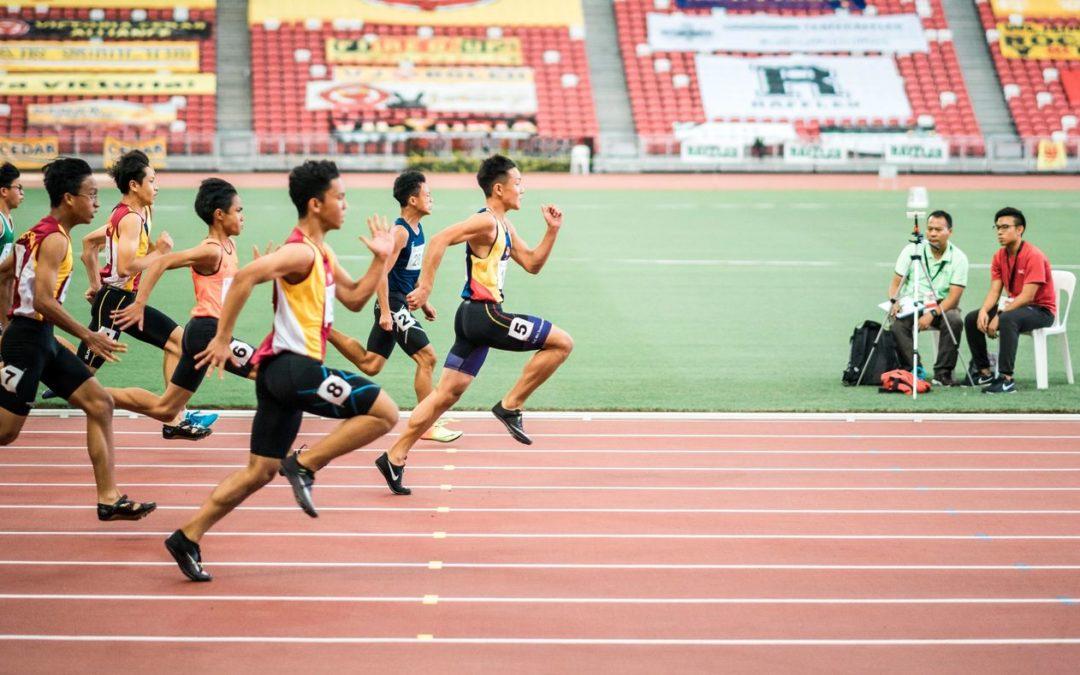RED-S is short for relative energy deficiency in sport and was previously known as the female athlete triad. It is a disorder that is characterized by low energy levels, amenorrhea and low bone mineral density, and is diagnosed by a healthcare professional.
This recent change in name also reflects the fact that this doesn’t only affect females, but all athletes, regardless of gender. The name change also highlights the widespread impacts the condition has on athlete’s health, rather than the original three aspects (the triad).
RED-S commonly occurs in athletes competing in sports with weight restrictions or that emphasize leanness or low body weight. Athletes in weight-centric sports limit their calorie intake with remain within, or below a certain weight limit. However, low calorie intakes can lead to the development of RED-S.
Relative energy deficiency in sports can occur in athletes competing in any sport and can occur in both individuals with or without eating disorders. Some sports in particular have a higher risk of RED-S. This includes (but is not limited to),
-
- Figure skating
- Gymnastics
- Synchronized swimming
- Long-distance running
- Judo
- Wrestling
Although RED-S is often associated with disordered eating and an intentional calorie restriction, some athletes may develop RED-S unintentionally.
Types of RED-S
RED-S can be categorized into one of three groups, each with its own clinical recommendations. The three categories of RED-S are,
- High risk (red light)
- Moderate risk (yellow light)
- Low risk (green light)
Understanding the category of RED-S you fall into, is key to treating the condition. Athletes falling within the high risk (red light) category should not be participating in sports, while those in the moderate risk categories should be closely supervised and have a medical treatment plan.
How to Spot RED-S
There are many signs and symptoms of RED-S that you can look out for. These include,
-
- Irregular or missed periods
- Decreased sex drive
- Changes in weight
- Reoccurring injuries
- GI troubles such as bloating or constipation
- Increased sensitivity to cold
Signs and symptoms of RED-S are not limited to physical changes but also include behavioural and physiological changes such as,
-
- Disrupted sleep and trouble sleeping
- Excessive training
- Increase in agitation
- Increase in anxiety and irritability
- Trouble concentrating
Significance of RED-S
Impact on Performance
As you probably could imagine, RED-S can impact your performance in sports. RED-S can lead to decreased endurance performance, increased risk of injury, decrease in glycogen stores and muscle strength. However, the impacts of RED-S don’t stop there.
Impact on Overall Health
As I mentioned earlier, RED-S impacts many aspects of your health including your,
- Metabolic rate
- Menstrual function
- Protein synthesis
- Ability to fight infections
- Bone health
- Heart health
As you can imagine, changes in many of these elements of health can impact your performance. A decline in your metabolic rate, protein synthesis or heart health can impact your performance in events.

Preventing RED-S
The good news is that RED-S can be treated and prevented!
Ensuring your diet contains enough calories and nutrients your body needs is a crucial element in preventing RED-S and the secondary complications. This includes,
-
- Eating regular snacks and meals
- Not skipping meals
- Making sure your diet is meeting your energy needs
Another key element in the prevention of RED-S is the education of athletes, coaches, parents, managers and others involved. Making sure both athletes and their support team are aware of the underlying causes, signs and symptoms, and the negative impact on health can help prevent the development of RED-S.
Fuel Your Performance and Support Your Health
A registered dietitian can help you ensure you are meeting your body’s energy and nutrient needs, and help reduce your risk of of RED-S. Book a FREE discovery call today to learn more and get started on fueling your performance and supporting your health!
With a Bachelor of Science in Nutrition and Food Science, Rachel has over 15 years’ experience helping people address their health through nutrition.


